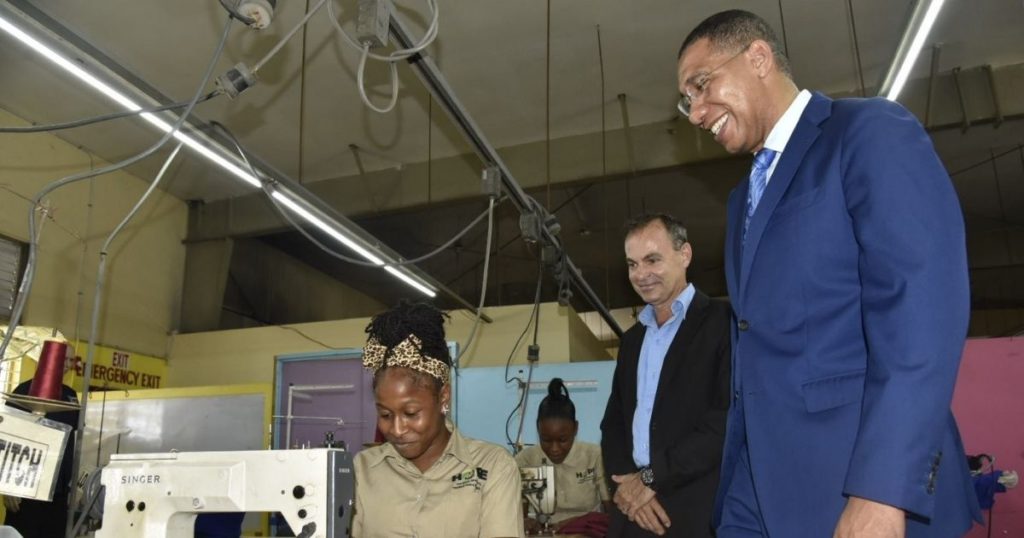More than 40,000 young persons have been enrolled through the Housing, Opportunity, Production and Employment (HOPE) Programme since it was launched in May 2017.
HOPE is a youth engagement initiative that targets persons aged 18 to 24 who are unemployed or enrolled in a school or training programme.
The HOPE program is a training and apprenticeship programme, which will provide an avenue for the development of fully rounded individuals, through a system of National Service Corps to become productive members of society. Additionally, the participants will be allowed to work in the particular skill area for a stipend with a savings component.
Providing an update on the initiative, National Coordinator, HOPE Programme, Colonel Martin Rickman, says that several measures are being implemented to ensure the continued engagement of youth, despite the onset of the coronavirus pandemic.
These include, but are not limited to, incorporation of online training; greater engagement with entities to provide employment and training opportunities for youth, utilisation of community centres with internet capabilities to facilitate ‘work from home’ for participants.
Colonel Rickman adds that the trainers, who have been engaged through HEART NSTA Trust, have also received the requisite training to impart the knowledge to the participants via the new modality.
“We have been doing some things with online training, and that has been very good. However, because of the type of persons, we engage on the HOPE programme, which are usually the unattached, inner-city youth from the poorer communities, one of the big challenges is that they don’t have access to an online modality of training. Even if they have a smartphone, which some of them may have, they still do not have the data or the access to the WIFI in that regard,” he points out.
The national coordinator informs that linkages are being created with community centres that have internet connectivity or computer labs, so that youth can gain access to the training being provided.
Colonel Rickman notes that notwithstanding the online component, community type training for certain skills is also being explored.
“For example, the construction skill – we can do block laying for instance. All we need is a yard space and then we can train persons in block laying, get them to a point where they can go out, either seek out employment with our help in the block-laying field or they can offer themselves to small homeowners to do block laying,”
he explains.
He points out that discussions have and are being held with stakeholders in several sectors that could facilitate the engagement of young people in more outdoor settings.
“I will invite anybody out there who, even if it is a small business and you can take on one person or you are a large business and you can take on 100 persons as interns, come talk to us at HOPE. Come talk to us at HEART and let us find these avenues to develop our young persons in a positive way,”
he adds.
The onset of COVID-19 has resulted in reduced placement opportunities for interns of the HOPE programme, particularly in offices.
Maintaining physical distancing and reducing workplace density are some of the measures that have been implemented by the Government to minimise the spread of COVID-19.
“We are also looking to have persons work from home. Many of the unattached youth may not have access at their homes, so by home in this case, I mean community centres or centres where they have access to online modalities where they can do work for persons from the community centres,” he explains.
The HOPE program is guided by the principle that every Jamaican youth will be provided the opportunity to work to learn, work to earn, work to give service to the nation and work to save for their future – Learning, Earning, Giving, Saving (LEGS).




